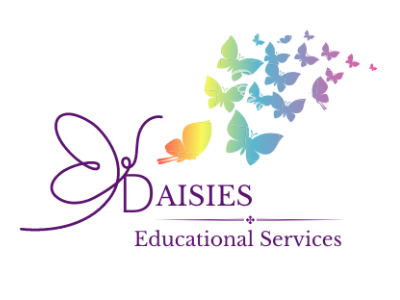5. Community Support and Networking
Parent Support Groups: Local and national organizations may offer group support where parents can connect with others facing similar challenges, share advice, and build a support network.
Online Forums and Virtual Communities: These communities provide around-the-clock support for parents, allowing them to connect with peers, ask questions, and share resources.
Partnerships with Local Agencies: Schools should collaborate with community agencies (like mental health services, recreational therapy programs, or vocational training centers) to create a broader support system for families.
6. School and Home Coordination
Home-School Communication Tools: Using apps, journals, or communication logs to create a consistent, real-time exchange of information between home and school regarding the student’s daily progress or needs.
Parent-Teacher Partnership Programs: Establishing formal programs where parents and teachers work closely together to ensure that interventions in the classroom are being supported at home, such as behavior strategies, reading programs, or social skill-building activities.
Homework Accommodations: Schools should work with parents to ensure that students have appropriate homework modifications and accommodations (e.g., extended deadlines, alternative assignments) that match their IEP/504 Plan.
7. Post-Secondary Transition Planning
Transition Services: Beginning in middle or high school, schools should collaborate with parents on a transition plan to prepare students for life after graduation, including vocational training, college accommodations, independent living skills, or community employment options.
College and Career Readiness Support: Schools should provide parents and students with access to college and career counseling to help plan for post-secondary education or workforce entry. This may include tours, application assistance, and understanding how to access accommodations in higher education.
8. Financial and Practical Support
Financial Planning for Special Needs: Parents may benefit from financial planning services, including advice on setting up special needs trusts or accessing government benefits (SSI, Medicaid) that can help support their child long-term.
Grants and Scholarships: Families should be made aware of grants, scholarships, and financial aid opportunities for students with disabilities or special needs.
Educational Savings Programs: Resources on setting up tax-advantaged savings plans like ABLE Accounts can help parents save for future education or living expenses without jeopardizing their child’s access to government benefits.
9. Knowledge of Rights and Legislation
Understanding Educational Laws: Parents need comprehensive knowledge of federal laws such as the Individuals with Disabilities Education Act (IDEA), Section 504 of the Rehabilitation Act, and the Americans with Disabilities Act (ADA). This knowledge empowers them to advocate for their child effectively.
Access to Documentation and Records: Parents should have access to all documentation about their child’s education, including evaluation reports, progress notes, and accommodations logs, so they can stay informed and engaged.
By addressing these comprehensive supports, parents are better equipped to advocate for their child, ensuring that educational environments meet their child’s unique learning and developmental needs.
Comprehensive
Support
1. Parent Education and Empowerment
Workshops and Seminars: Offering ongoing training for parents on special education laws, IEP/504 processes, and how to advocate effectively. This includes understanding how to set measurable goals, monitor progress, and collaborate with school staff.
Parent University Programs: We offer year-round educational programs that help parents understand the nuances of the special education system, rights, and responsibilities, along with how to navigate the educational landscape.
IEP/504 Plan Bootcamps: Intensive programs that walk parents through the creation, implementation, and annual review of their child’s IEP or 504 Plan. These could involve role-playing, workshops with educators, and examples of successful plans.
2. Collaboration and Communication with Schools
Consistent Communication: Parents should receive frequent updates about their child’s progress, beyond the annual IEP/504 meetings. Schools can establish communication channels like weekly emails, apps, or dedicated parent-teacher conferences focused on the student’s progress.
Parental Input in School Policies: Schools can form advisory committees that include parents of children with IEPs and 504 Plans to ensure policies and decisions take their perspectives into account.
Data Transparency: Schools can provide parents with detailed reports and visual data (charts, graphs, etc.) showing the progress or challenges in their child’s academic and behavioral development, based on IEP goals.
3. Mental Health and Family Support Services
Counseling and Mental Health Services: Both parents and students benefit from access to counseling services. Parents may need emotional support in managing the challenges that come with raising a child with special needs.
Family Therapy: In some cases, entire families may need therapy to help siblings and parents process the emotional impact of a child’s disability and ensure strong family dynamics.
Respite Care Programs: These programs provide temporary relief for parents by offering professional care for their child, allowing the family to take breaks and avoid burnout.
4. School-Based Academic and Behavioral Supports
Access to Specialized Staff: Schools should ensure that parents know the specialists available to their child, including special education teachers, speech-language pathologists, occupational therapists, and counselors, among others.
Behavioral Intervention Plans (BIPs): Parents should be educated on behavioral supports available under an IEP or 504 Plan and how to develop or modify a Behavioral Intervention Plan if their child has behavioral challenges.
Assistive Technology: Schools should educate parents on available assistive technologies (text-to-speech software, audiobooks, speech-generating devices, etc.) that could help their child access learning more effectively.
Tutoring and Academic Support: Providing access to in-school or after-school tutoring, learning specialists, or specialized programs to help the student meet IEP goals or general education objectives.


